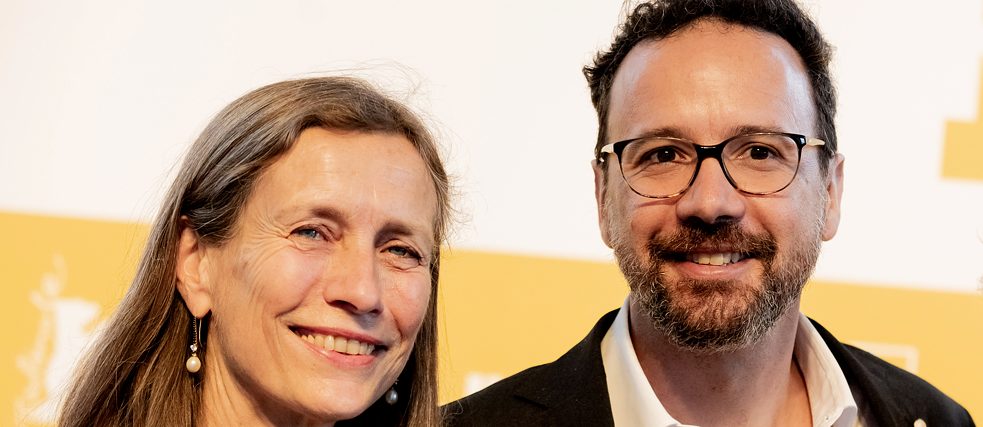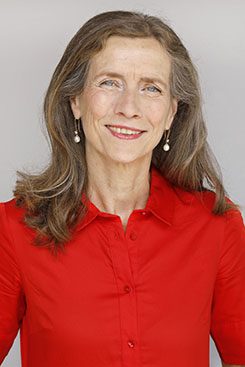Berlinale co-director Mariette Rissenbeek
“Festivals need to connect to the younger audience”

With its annual slate of world premieres, its coveted accolades and its position as the first major European film festival each year, Berlinale is no stranger to making history. When the projectors start whirring for the event’s 70th year in 2020, it’ll do so in a different way — not only with new co-directors at the helm, but with the festival’s first female director, Mariette Rissenbeek.
By Sarah Ward
After an 18-year run, Dieter Kosslick’s time in Berlinale’s top job has come to an end. His replacements: Carlo Chatrian as artistic director and Mariette Rissenbeek as executive director. Chatrian comes to Berlin from the Locarno Film Festival, where he has held the position of director since 2013. Rissenbeek makes the leap from German Films, the information and advisory centre regarding the international distribution of German-made and -funded movies, and from her role as the organisation’s managing director.
The changing of the guard at any film festival is significant, bringing with it a wealth of changes; however Rissenbeek’s appointment comes with added importance. Not only does she make history in Berlin, but in Europe — marking the first time that any of Europe’s big three film festivals (Berlinale, Cannes and Venice) have placed a woman in the director’s chair.
Working with Chatrian, just what Rissenbeek has in store for Berlinale attendees will be unveiled in February 2020. Cinephiles, that’s only ten months away. With the lights fading on the festival’s 2019 iteration and planning getting underway for next year, Sarah Ward chatted with Rissenbeek about her new role.
Women as directors
You’re Berlinale’s first female director, which is a significant achievement for a 70-year-old festival. Your predecessor, Dieter Kosslick, held his position for nearly two decades — but why do you think it has taken so long for a woman to earn the top job? And the top job at any of the big three European film festivals (Berlinale, Cannes, Venice), for that matter? Berlinale Co-director Mariette Rissenbeek.
| © German Films / Kurt Krieger
I ask myself the same question, especially as a lot of women work in the media sector!
Berlinale Co-director Mariette Rissenbeek.
| © German Films / Kurt Krieger
I ask myself the same question, especially as a lot of women work in the media sector!During your time at German Films over the past 17 years, what are your observations regarding female German filmmakers — has anything changed or improved regarding gender parity in the local industry?
In the past years, I got to know a number of very interesting, young female filmmakers. I hope it will become easier for them to combine the work as a director with having a family — which is a challenge for sure. At the same time I hope the industry finally realises a woman delivers the same amount of creativity and energy as a man!
This year’s Berlinale had a bigger focus on female filmmakers, especially female German filmmakers within the competition. Is that something you’re looking to continue and/or build upon?
Of course this is an important element. It always also depends on the films that are available.
What is your first Berlinale memory as an audience member?
I remember seeing Zhang Yimou's Red Sorghum at the Zoo Palast, and how taken I was by the great film and the experience of seeing it with this large audience.
The changing role of festivals
After your time at German Films, supporting local film productions, what attracted you to the co-director role at Germany’s biggest film festival?At German Films I have been working with a large number of international festivals, including Cannes, Venice, Toronto (and Berlin of course). German Films informs the festivals of upcoming films and uses the presentation of German films at the festival to support and promote German talents. During the last years, the role of festivals has been changing — and it is a unique opportunity for me to be part of the Berlinale, and work on keeping the festival as a strong link between cinema and the audience and developing new opportunities. Cinema is a unique communication tool.
You’ve worked in production, then promotion as part of German Films, and now you’re moving into the festival sphere — was this always the path that you had in mind?
Oh no. I rather moved from one point to another when I knew I wanted to move on and saw specific options. I did not plan this from the very beginning.
You’re taking the reigns for Berlinale’s 70th iteration — has marking this milestone had an impact on how you’re approaching the role?
Of course we will have special activities — but our focus will be on the future of cinema and the audience. As you know a lot is changing right now in the media world.
What role do you think that festivals such as Berlinale play today, particularly as technological advancement brings about changes in audience behaviour — as seen through the rise of streaming, most notably?
Festivals need to connect to the younger audience, which focuses on streaming platforms. The same studies show many of the (over 40 years of age) platform users also regularly go to the cinema, so I have high hopes we can also connect to the younger audience.
What do you think is the most important issue facing the German film industry as a whole?
Certainly the fact the younger audiences all over the world concentrate more on streaming platforms.
You were on the selection committee for Berlinale’s new artistic director Carlo Chatrian before you were appointed executive director of the festival yourself. How did that process work? And how did your role come about afterwards?
As member of the search committee we were three persons, the State Minister for Culture and the Media, Monika Grütters, Björn Böhning (at that time representing the City of Berlin) and myself. We discussed first the profile of the new Festival Director and then talked to a large number of candidates, including international critics and festival programmers. We were looking for a person with a strong experience in festival programming. Some of the candidates pointed out they want to focus on programming, and lack knowledge of the German institutions, general film industry and national administrative rules. We had discussed this between ourselves prior to the process, but had decided to leave this issue open to the candidates. When discussing the profile for this person my fellow committee members approached me.
How will the co-director relationship work?
Carlo Chatrian shapes the profile of the festival programme, and we discuss the options and consequences together. We talk about all main points but will work separately on a daily basis. I will be responsible for Berlinale elements like European Film Market, Berlinale Talents, Co-Pro Market and World Cinema Fund.
What plans do you have for the festival?
We are working on this right now!